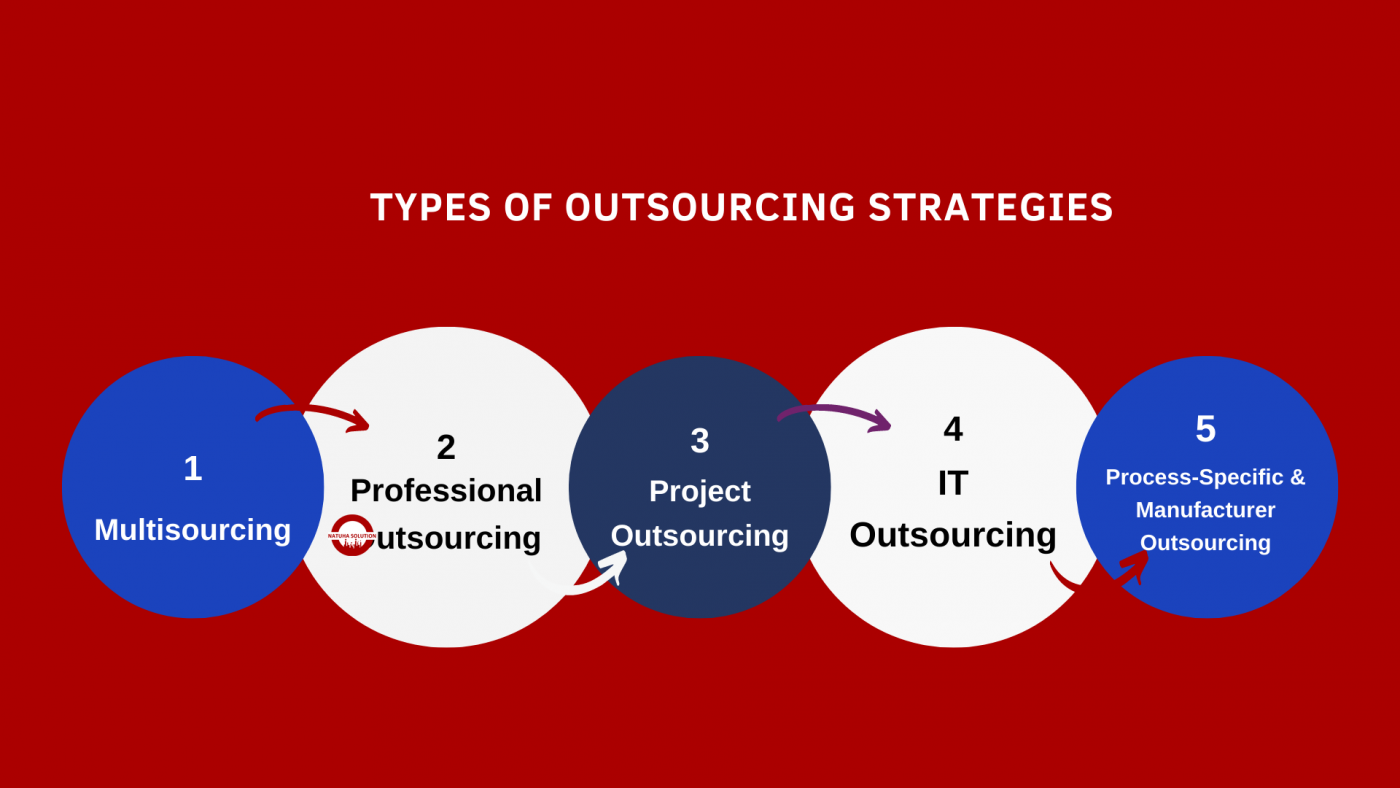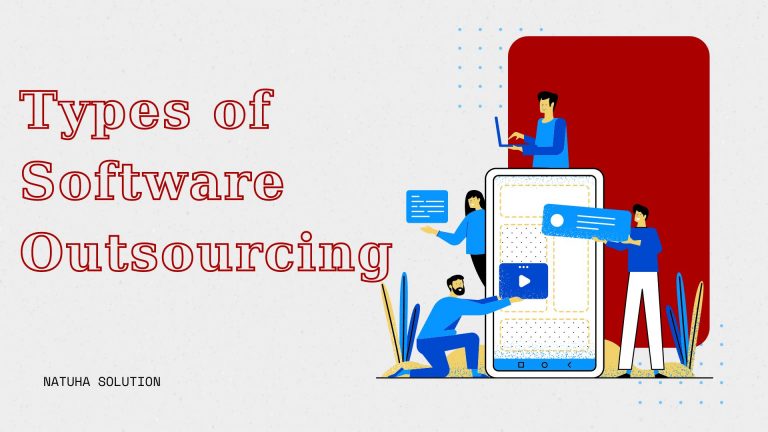

IT outsourcing strategies are key enablers of the sustainable competitiveness of the companies engaged in technology-intensive business. As a result of successful outsourcing experience, the company can reap the benefits of enhanced dynamic capabilities, market-oriented innovation, strategic flexibility, agility, and increased efficiency. The cooperation between outsourcer and outsourcee will result in the development of dynamic capabilities that are related to knowledge management routines such as learning, sharing, integration, and reconfiguration.
Mục lục
What Are Outsourcing Strategies?
Outsourcing means finding and hiring a third-party service provider to deal with certain tasks that are beyond the capabilities of the in-house team. Recently, the practice of working with external resources has grown into a trend as it brings a number of benefits to the outsourcers.
Outsourcing strategy is a plan built on the analyses and assessment of the functions that should be better performed by an external service. It means that the company defines tasks that are hard or impossible to perform with its own resources and starts searching for the companies that have all the necessary tools and qualified staff to deal with the task within the stated time frame.
The same goes for outsourcing IT strategies, as IT companies work in different directions within the field and might not have all the means to complete certain operations or implement new technologies on their own.
Types Of Outsourcing Strategies
Over the years, outsourcing strategies have developed and grown into different types that have specific purposes.
Outsourcing strategies can be divided into:
- Onshore – you are looking for third-party services in your own country
- Nearshore – hiring from the neighboring countries
- Offshore – working with distant countries
In addition to this, outsourcing strategies are usually grouped into the following categories:
- Professional Outsourcing
- IT Outsourcing
- Multisourcing
- Manufacturer Outsourcing
- Process-Specific Outsourcing
- Project Outsourcing
Every company that seeks for an outsourcing service should analyze their business processes and highlight that an external team should change the functions or operations. Based on the analyses, they will be capable of choosing the right type of outsourcing strategy. For instance:
Professional Outsourcing
Is used when your organization lacks a specific type of professional, such as ten mobile app developers. So you opt to outsource these mobile app professionals to fill the void.
IT Outsourcing
IT outsourcing might include infrastructure, software development, maintenance, and support, among other things. Regardless of size, small and large businesses in all industries have IT requirements (particularly now that the COVID-19 is driving the demand for digitization).
Multi- Outsourcing
This strategy covers IT outsourcing as well as other business operations such as accounting, human resources, and administration.
Manufacturer Outsourcing
This is a very typical example when Samsung orders components outsourcing in Vietnam. Outsourcing according to this strategy helps Samsung save significant costs in terms of factories, personnel… If you want to manufacture products bearing your brand, you just need to search for a company (household, production) already has all the necessary equipment and is able to provide you with the service.
Process-Specific Outsourcing
Means to hire an outsourcee that specializes in a narrow or specific service
Project Outsourcing
If your organization has too many projects to accomplish in a timely manner, you should look for a vendor to contract the work to.
Best IT Outsourcing Strategies
It cannot be said that there are bad or good outsourcing strategies. The success of outsourcing depends on a number of aspects that every company should think of before hiring external services.
Steps to choose an IT Outsourcing Strategy
Although IT outsourcing strategies described above have different goals, they all have the same structure. Thus, there are certain steps to follow in order to make it successful.
Outline the specific project objectives
First and foremost, you must determine why your company needs to outsource. You must have a clear vision of what you want to achieve throughout the outsourced project. Knowing what your goals are at different stages of a project allows you to gauge a company’s true outsourcing requirements.
Budget for outsourcing
You need to budget for outsourcing to ensure good project completion goals and financial goals. Having a clear budget allows you to sift through outsourcing companies, saving you time and focusing on the right ones.
Select the best outsourcing model and partners
The vendor should suit your needs and be capable of completing tasks of any complexity. Also, do not underestimate your in-house staff and make sure that senior management is involved in the process
Natuha Solution – Outsourcing Services
Natuha Solution is a top IT outsourcing service specialized in providing solutions to businesses of all sizes. Along with the trend in eCommerce and the digital area, the company has shifted its focus toward Magento development. Throughout its path, Natuha Solution has claimed to be among the prominent outsourcing companies in Vietnam.
Create an effective contract
You must provide a clear and concise outsourcing contract with third parties that includes the work to be completed, the time frame and clearly defines your expectations with the outsourcing party.
Track the process
Make sure that you are getting what you have paid for. The reporting on the project progress and transparency are extremely important
Things to know about Strategies for IT Outsourcing
An IT outsourcing strategy requires the cooperation of several departments (legal, HR, operations, etc) and the results depend on unified work and a clear business plan. Often, organizations have only one goal for this strategy: to get the best technology at the lowest cost.
But there are also cases where the search for outsourcers fails. So it is essential to have clear goals and what you need. Communication is also an important factor influencing the successful outcome of outsourcing. When choosing to outsource, you need to have a constant connection with third parties, regularly communicate to capture important issues.
Have A Project In Mind? Let's Get To Work









